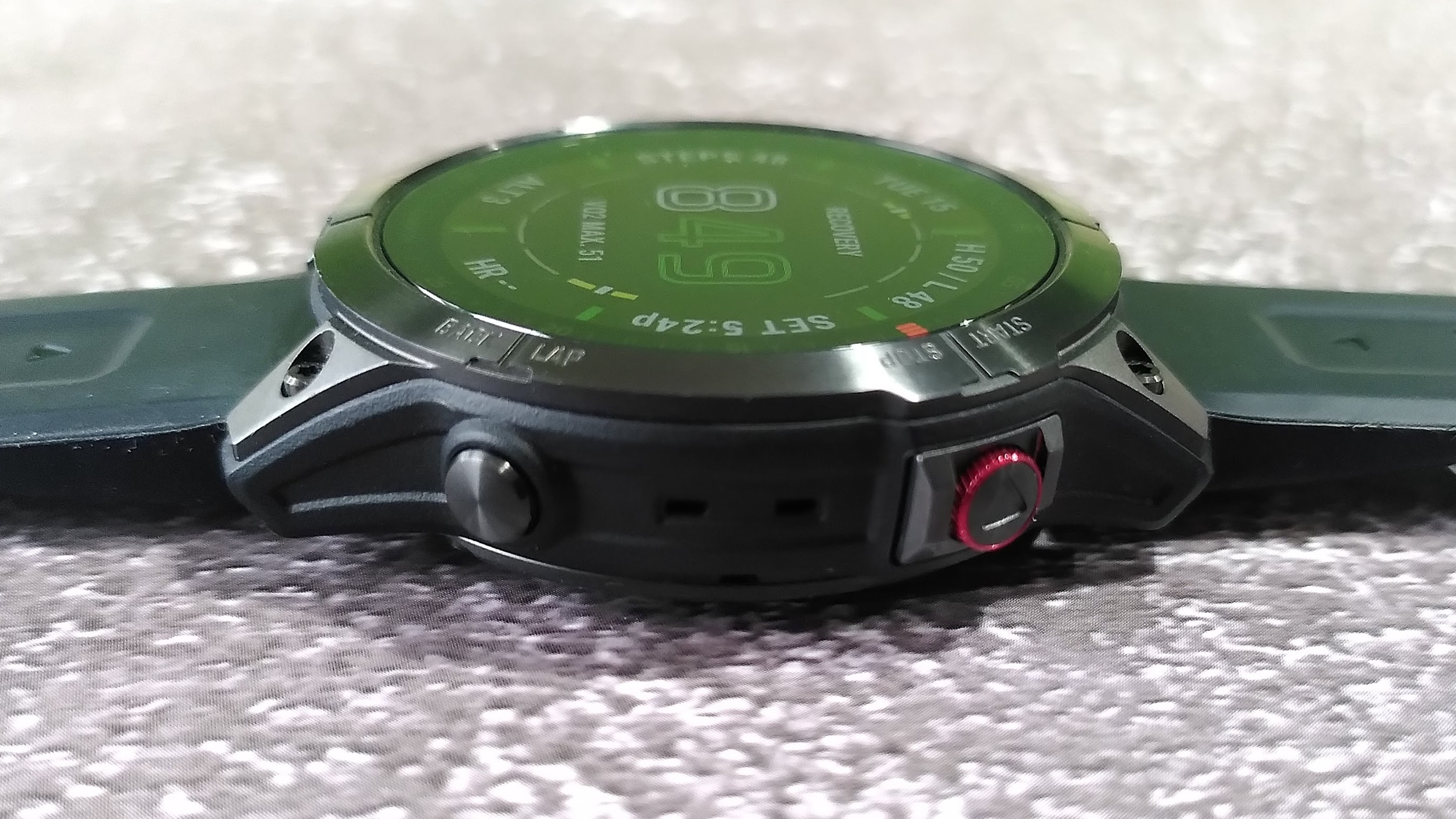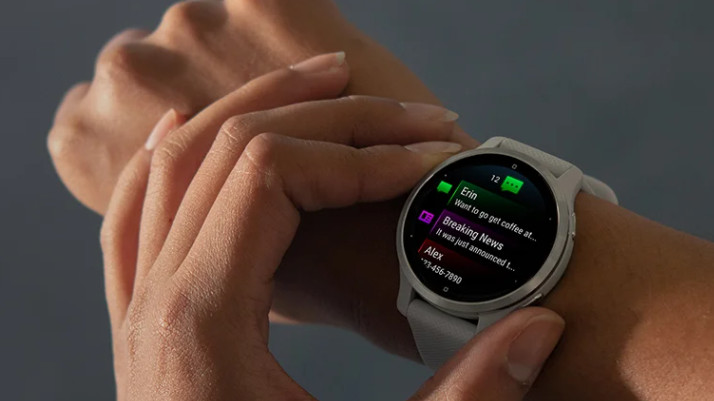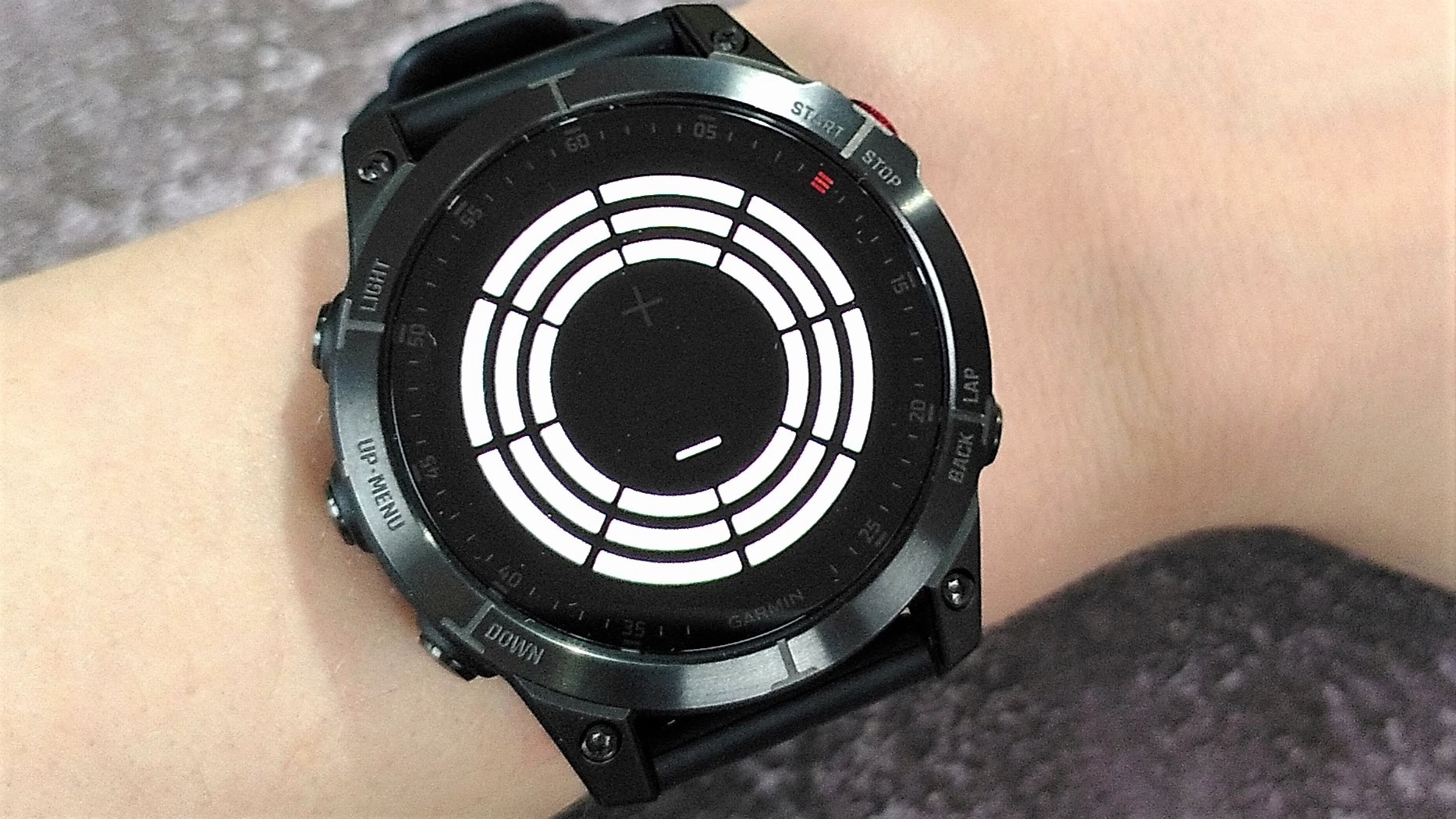Garmin Epix (Gen 2) vs Garmin Venu 2: two of Garmin’s best-looking watches compared
If you’re in the market for a new sports watch, the Garmin Venu 2 and Garmin Epix (Gen 2) are two that are likely to be on your shortlist. They’re certainly two of the most exciting Garmin watches around today thanks to their bright OLED screens, which are much easier to see in all lightings conditions than the memory-in-pixel (MiP) screens of watches in the Fenix and Forerunner series.
However, despite using the same screen tech, these are two very different watches. The Venu 2 is a fantastic all-rounder with a good range of everyday smartwatch tools, plus a great selection of sports tracking features. The Epix (Gen 2) on the other hand, is a watch for serious sportspeople, with advanced training tools designed to help you smash your goals and reach new personal bests. This difference is also reflected in the watches’ prices; the Epix is around twice the price of the Venu 2.
That’s just the fundamentals, there are also a lot more differences to be aware of, which we’ll go through below. If you’ve already made up your mind though, we’ve rounded up the very best deals on both watches right here.
Watch models and price
Watch models
- Epix (Gen 2) available in two materials but one size
- Venu 2 comes in 40mm and 45mm versions
- Venu 2 Plus has 43mm diameter case
The Garmin Epix (Gen 2) is only available in one size (47mm) but comes in two variants: standard and sapphire. The standard version is slightly cheaper (which we’ll explain in more detail shortly), and has a Corning Gorilla Glass lens, a dark gray reinforced polymer case with stainless steel on the front and back. It’s finished with a dark gray silicone band.
The sapphire edition has a titanium bezel and case back, and a reinforced resin case in either white or black. The lens is made from tough sapphire crystal, and you can choose a silicone band or upgrade to leather for an additional fee. At the time of writing, the leather band isn’t available in the US.
The Garmin Venu 2 comes in two sizes (40mm or 45mm), the smaller of which is called the Venu 2S. Both of these are more compact than the Epix (Gen 2), making it a better choice for slimmer wrists.
Like the standard edition Epix, the Venu 2 has a reinforced resin case with a stainless steel back and bezel. It comes in a range of colors, with different options for the two sizes.
In January 2022, Garmin released the Venu 2 Plus, which has a case measuring 45mm in diameter. It’s made from the same materials, but there’s also a premium version that comes with a leather band in addition to the standard silicone one. Again, the leather variant isn’t currently available in the US.
Price
- Epix (Gen 2) is over twice the price of Venu 2
- Venu 2 Plus is $50 more than Venu 2
- Premium materials available for an additional fee
The Garmin Epix (Gen 2) is a premium smartwatch, while the Venu 2 Plus is a mid-range model – and that’s reflected in their prices.
The Epix (Gen 2) costs $899.99 / £799.99 / AU$1,399 for a model with a stainless steel bezel and Corning Gorilla Glass covering the face, or $999.99 / £899.99 / AU$1,499 for a sapphire crystal lens and a titanium bezel.
There’s also a model with sapphire crystal and a titanium bezel, plus a chestnut leather strap rather than the standard silicone, priced at £999.99 / AU$1,549 (but not currently available in the US).
The Garmin Venu 2 costs $399.99 / £349.99 / AU$629 for both the 40mm and 45mm versions, while the Venu 2 Plus is $449.99 / £399.99 / AU$699 for the standard version, and £449.99 / AU$749 for the one with a leather band.

Design, display and battery life
Design
- Epix (Gen 2) is more rugged looking
- Epix has five buttons, while Venu 2 has two
- Venu 2 Plus has third button for microphone
The Garmin Epix (Gen 2) and Venu 2 both have the round face typical of most of the company’s watches, but the Epix has a more rugged look thanks to the exposed screws on its metal-covered lugs.
We’ve already discussed the two watches’ sizes and materials, but it’s also worth mentioning their button layouts. The Epix (Gen 2) has the five-button setup that’ll be familiar to Garmin Forerunner and Fenix users. The start/stop button at the top right is protected by a small metal guard to prevent accidental presses or damage/
The Venu 2 has just two physical buttons on the right-hand side of the case (one to select a menu option and one to navigate back). All other watch functions are carried out using the touchscreen, though this is locked by default while you’re tracking an activity to prevent accidental presses. The Venu 2 Plus has an additional button in between these two, which activates the watch’s microphone.

Display
- All have bright OLED displays
- Venu 2S has lower resolution than others
- Touch interface is smooth and responsive
Both the Garmin Epix (Gen 2) and Garmin Venu 2 have bright OLED touchscreens that look great in all lighting conditions, and are much more striking than the memory-in-pixel (MiP) displays used by most Garmin watches.
All versions of both watches have the same screen resolution, with the exception of the compact Venu 2S, as shown in this list:
- Garmin Venu 2S (40mm) – 360 x 360 pixels
- Garmin Venu 2 Plus (43mm) – 416 x 416 pixels
- Garmin Venu 2 (45mm) – 416 x 416 pixels
- Garmin Epix (47mm) – 416 x 416 pixels
The screens of both the Venu 2 and the Epix proved smooth and responsive in our tests, but if you’d prefer to stick with the more traditional button navigation, you can choose to disable the screen during workouts, or at all times.

Battery life
- Shorter battery life than Fenix and Forerunner watches
- The larger the watch, the longer the battery life
- Using always-on mode dramatically increases power usage
The downside of an OLED display is that it uses a lot more power than an MiP screen, so the Venu 2 and Epix have shorter battery lives than watches in the Fenix and Forerunner series.
Their longevity is nothing to be sniffed at though, particularly if you’re an Apple Watch fan who’s used to charging your watch every night. Generally speaking, the larger the watch, the larger its battery, and the longer it will run between charges. We’ve rounded up all of Garmin’s quoted battery stats here, but in our tests we found that we could expect each watch to run a little longer than this.
| Mode | Venu 2 | Venu 2 Plus | Epix (Gen 2) |
|---|---|---|---|
| Smartwatch | 11 days | 9 days | 16 days |
| Battery saver smartwatch | 12 days | 10 days | 21 days |
| GPS | 22 hours | 24 hours | 42 hours |
| Max battery GPS | N/A | N/A | 75 hours |
As with any sports watch or smartwatch, the real world battery life will vary depending on the features you use, such as SpO2 monitoring, GPS, and music playback. Enabling always-on mode will use extra power too, and dramatically cut battery life (though it does make your watch look great).
There are no solar variants of either the Venu 2 or Epix, but recently registered patents suggest that Garmin is working on a cost-effective way to incorporate photovoltaic cells into an OLED screen, so this may be something that arrives with a future iteration of either watch.

Smartwatch and fitness features
Smartwatch features
- Very similar range of smartwatch features
- Epix (Gen 2) has Garmin Connect IQ store on the watch itself
- Venu 2 Plus has microphone for calls and voice assistant
In terms of everyday smartwatch features, the Garmin Epix (Gen 2) and Venu 2 are very similar. Both can receive smartphone notifications, allow you to reject a call with a text message (if you have an Android handset), and allow you to find your phone through your watch (or vice versa). They also both let you control music playback on your phone, or play music directly from the watch itself (though the Epix has much greater capacity).
Whichever watch you choose, you’ll be able to download additional apps through Garmin Connect IQ, but if you opt for the Epix (Gen 2) then you can do it through the watch itself rather than using the mobile app on your phone.
The Venu 2 Plus has all the features of the original Venu 2, plus a microphone that allows you to take calls from your wrist and use your phone’s voice assistant when it’s within Bluetooth range. In our tests, the sound quality was surprisingly clear for a smartwatch, and we found ourselves turning to Google Assistant much more often than we would normally. This isn’t something you’ll get with the Epix (Gen 2).
Fitness tracking
- Both excellent multi-sports watches
- Epix (Gen 2) has more advanced training tools
- Epix (Gen 2) has great range of maps pre-installed
When it comes to fitness tracking, the Garmin Epix (Gen 2) is by far the more advanced of the pair. It has pretty much the same feature set as the Garmin Fenix 7 multi-sports watch, but with the addition of that excellent OLED screen, which really comes into its own for maps and navigation.
Both watches have Garmin’s signature GPS (which is extremely accurate even in built-up locations), all-day heart rate monitoring, stress tracking, blood oxygen monitoring, sleep tracking, and the ability to take a ‘health snapshot’ to check your vital stats at a particular point during the day.
They also have an impressive raft of sports tracking modes, but the Epix has a whole suite of advanced training tools on top – particularly for runners, swimmers, and cyclists. Training load monitoring, heat and altitude acclimation, a real-time stamina meter, estimated finish times, swim pacing alerts, and open water swim metrics are just a few of the tools right at your fingertips.
The Epix (Gen 2) also comes with an excellent set of pre-loaded maps, with more available through the watch’s built-in map manager. In our tests, we were particularly impressed by the cycling and topographical maps.
For all the latest Technology News Click Here
For the latest news and updates, follow us on Google News.
